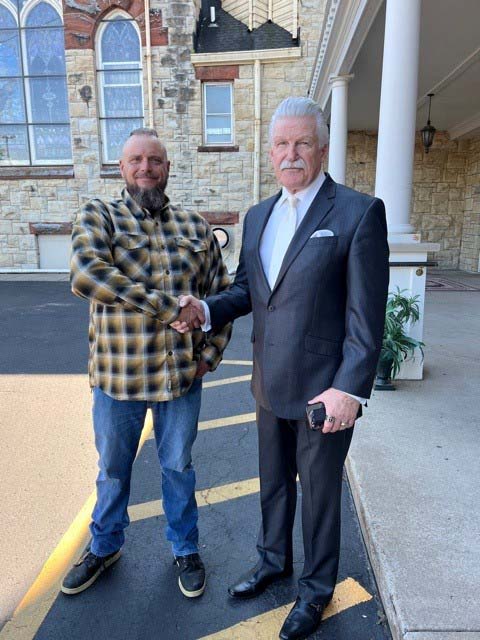Glasgow Announces Will County Problem Solving Courts Program Passes Milestone With More Than 750 Graduates Program alumni says recovery has given him the great gift of hope
September 30, 2022 Joliet –State’s Attorney James Glasgow has announced that 21 people graduated from the Will County Problem Solving Courts in a September 29 ceremony at the Jacob Henry Mansion in Joliet. With this ceremony the courts reached a milestone of more than 750 graduates. The total now stands at 769 individuals who are turning their lives around through the diversionary courts established in Will County.
“I knew that we could help people on their road to recovery when I wrote the grant to create our Drug Court back in 1998, but the continued success of our program through the hard work and diligence of the tireless staff and dedicated program participants is unprecedented and has exceeded all expectations,” Glasgow said. “The lives of more than 750 individuals, along with their families and loved ones, have been changed for the better. When we work together as a community, we can accomplish great things.”
The program honored two Veterans Court graduates, who hail from Naperville and Joliet; six Mental Health Court graduates, from New Lenox, Joliet, Romeoville, Homer Glen, and Plainfield; and thirteen Drug Court graduates, from Wilmington, Homer Glen, Joliet, Lockport, New Lenox, Romeoville, Mokena, Shorewood, Braidwood, University Park, Bolingbrook and Monee.
In addition to remarks by Glasgow and Associate Circuit Court Judge Fred Harvey, Problem Solving Courts alumni Jason Carmen spoke to the new graduates about his experience and how the program turned his life around. Here is an excerpt:
Some of you may be thinking about getting high tonight because you’ve finished all the stuff you’ve had to do, you’ve graduated, you passed. I’ve been at several funerals for people who thought the same thing. There’s a different way. Out there, you’re not playing Russian roulette anymore; it’s a full, loaded gun. Period. Fentanyl is in everything. It’s in cocaine. It’s in marijuana. It’s in dope and in pills, anything you can get on the street. … You must turn to your higher power, whatever that is. … And this is the most amazing thing — anyone, from any walk of life, can walk up to me, and they can say Jason I have a problem I can’t stop getting high, Jason, can you help me? And my answer is, unequivocally, yes I can. I can help you. That’s one of the great gifts I’ve been given — hope.”
According to Carmen, “although I had the desire to stop, I lacked the ability” before the support and guidance received through the Problem Solving Courts program. Carmen graduated in 2017 and now helps others in their recovery efforts.
In addition to his role in establishing the Drug Court, Glasgow established the Mental Health Court in 2010 along with Will County Chief Judge Gerald Kinney; filed a petition requesting the formation of the Will County Veterans Court in 2012; and wrote and obtained the grant for the Redeploy Illinois Court to steer qualifying repeat offenders away from prison and into gainful employment. Although Redeploy Illinois no longer is a separate program it continues to provide funding for individuals to participate in the three other diversionary court programs.
Glasgow also established three transitional residence facilities to further help Problem Solving Court participants on the path to reentry into the workforce. The Miller Taylor House and Julie Ann House provide temporary housing, and the Connor Kelly Residence opened its doors in 2019 to provide longer-term transitional housing.
Jason Carmen and State’s Attorney Glasgow before the graduation ceremony.

